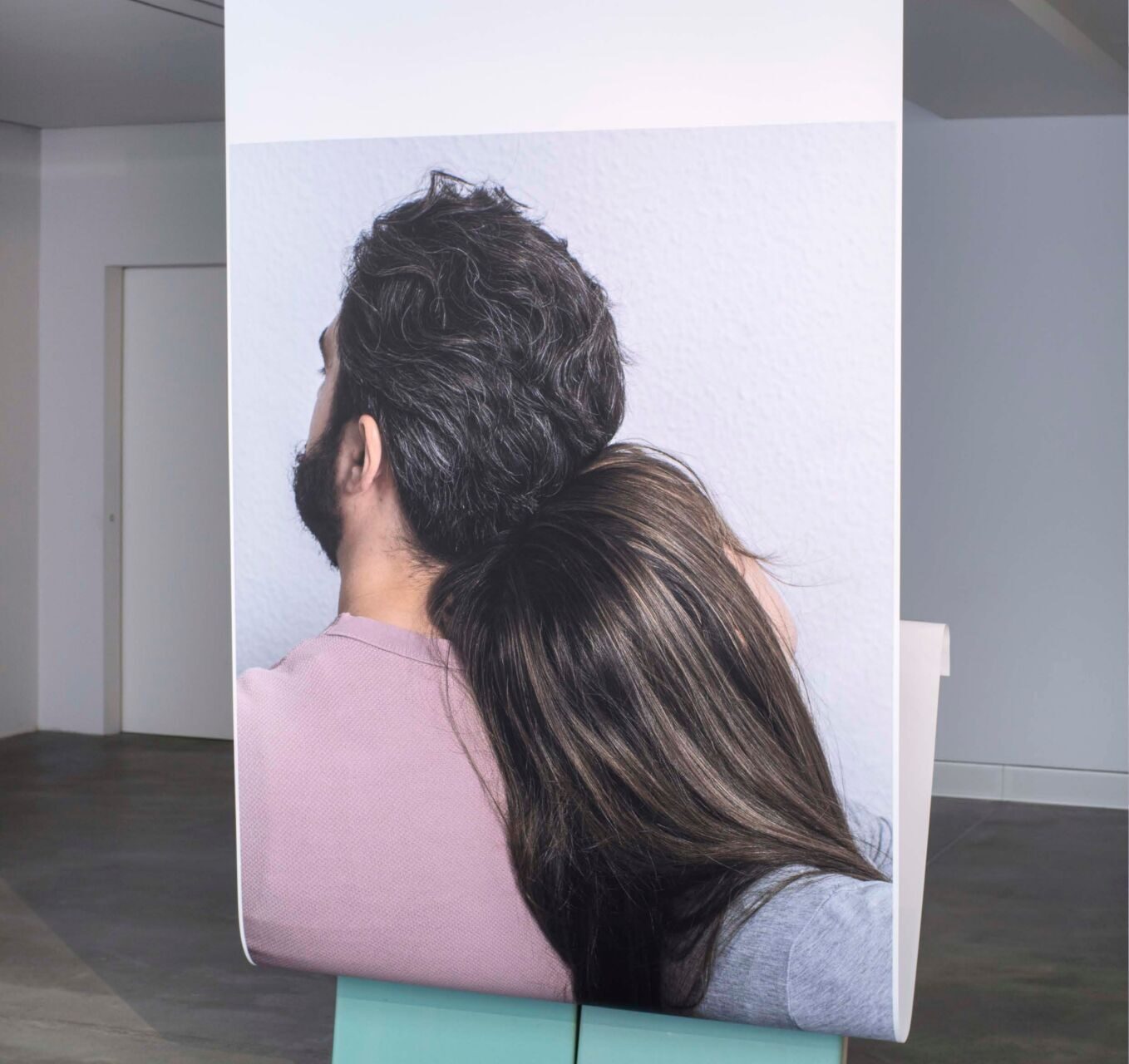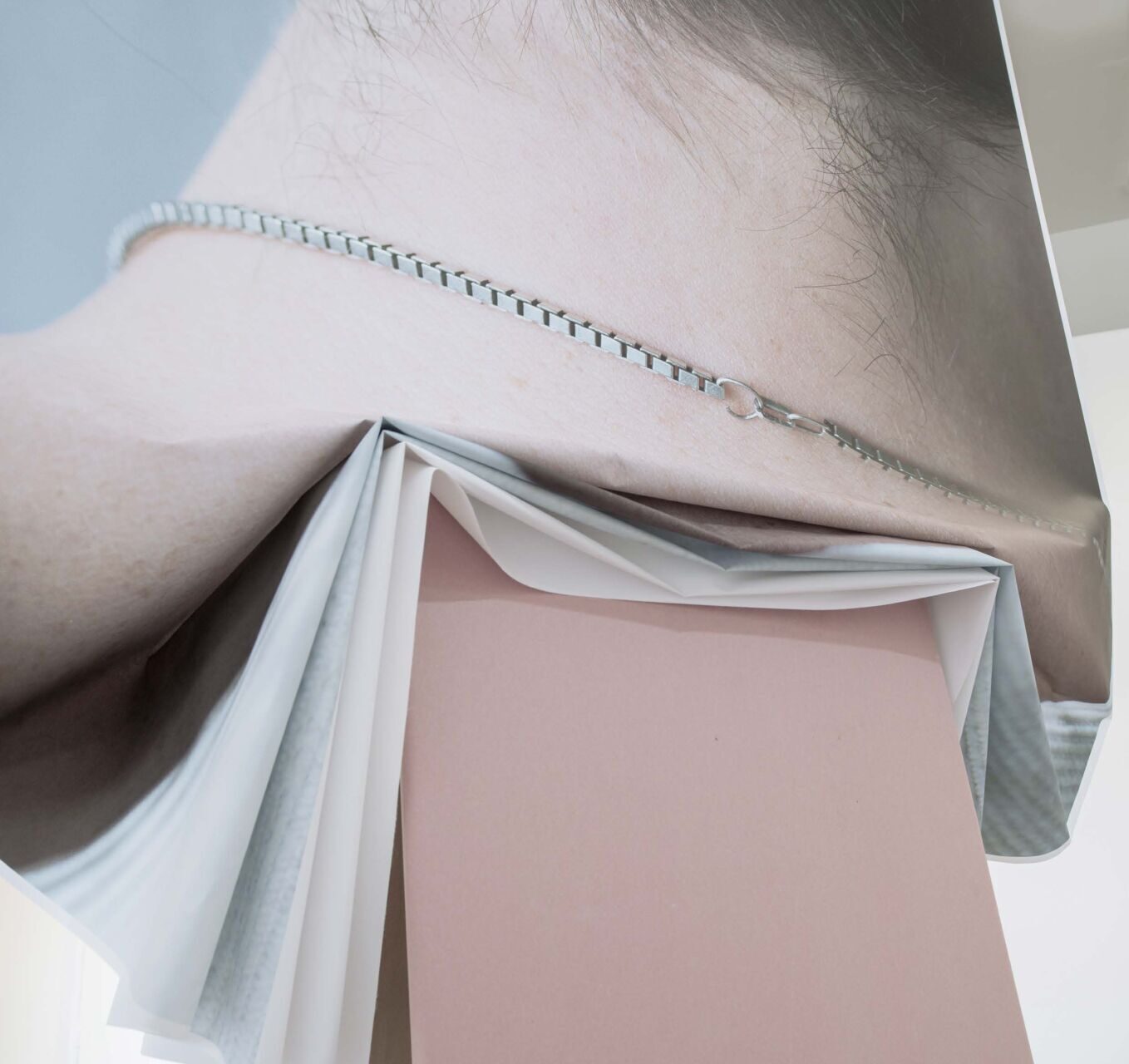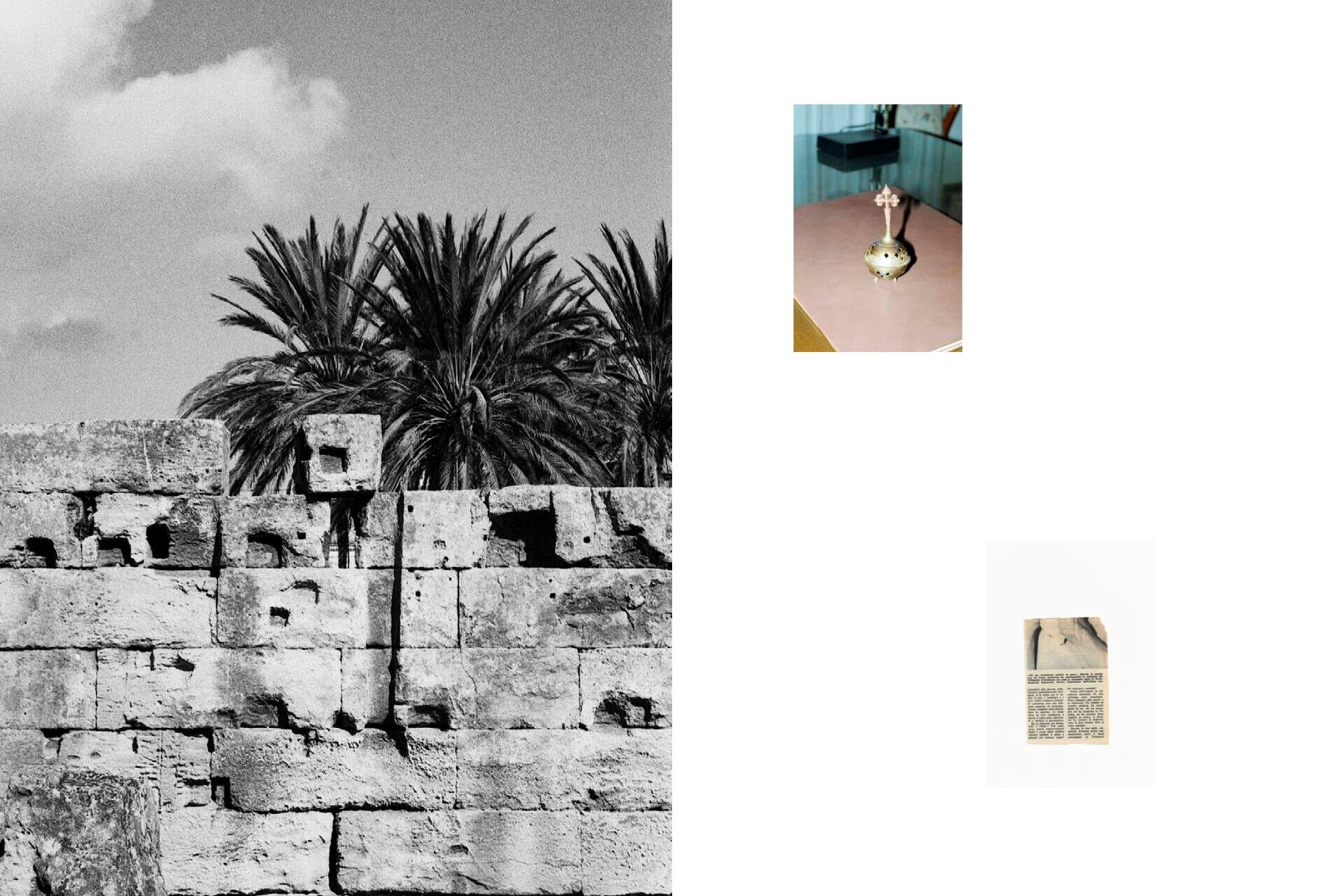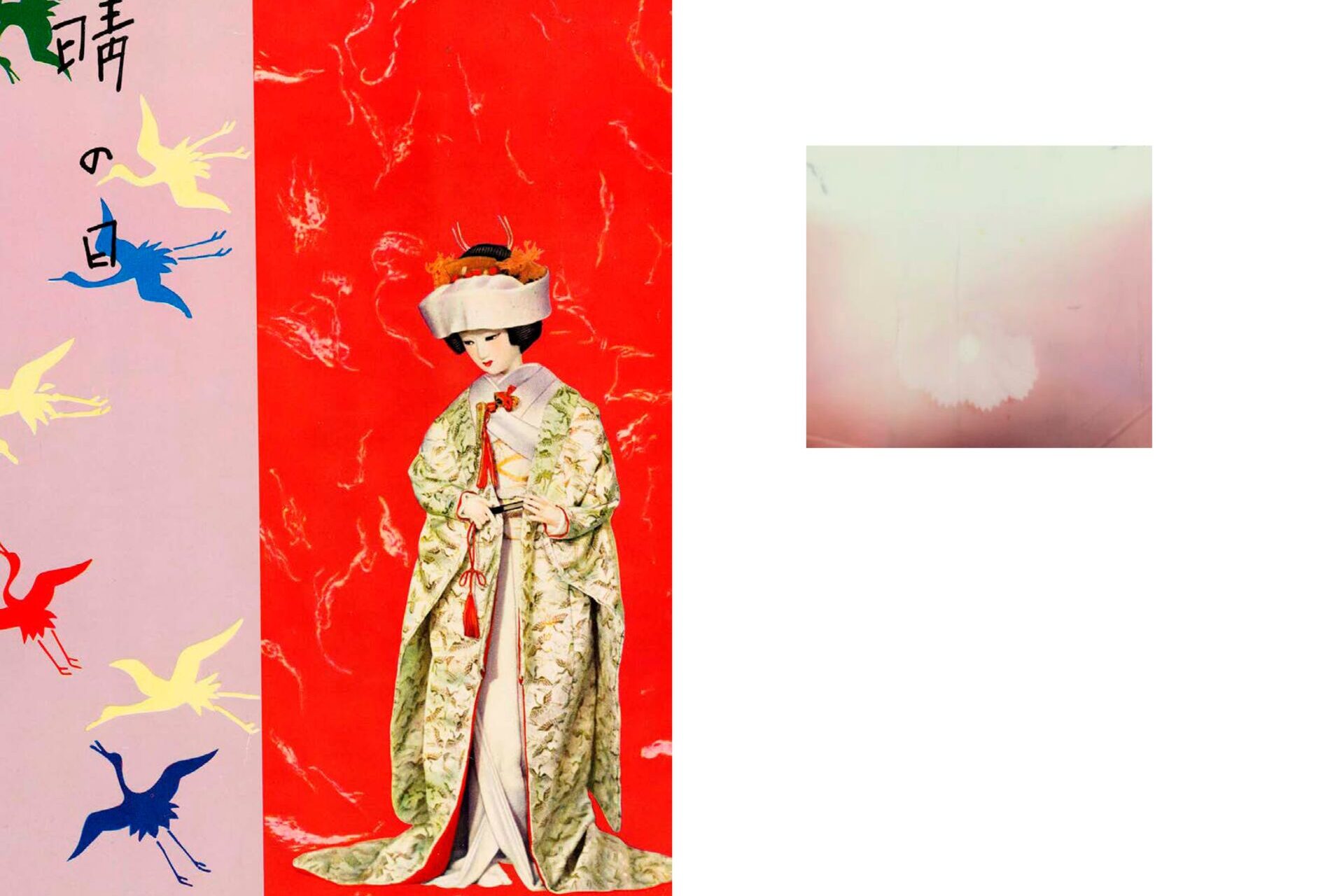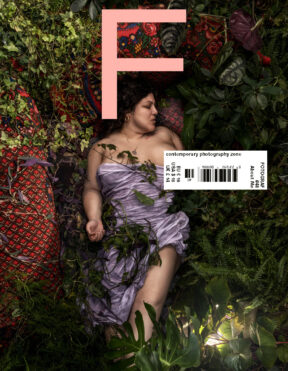2023 OPEN CALL WINNERS
We are pleased to present the results of FOTOGRAF MAGAZINE OPEN CALL 2023, which was assessed by an international committee of photographers and curators of contemporary photography including:
Constanze Müller (F/stop Leipzig), Emese Mucsi (Robert Capa Center Budapest), Moritz Neumüller (Photobookweek, Aarhus), Simon Roberts (visual artist), Raphaëlle Stopin (Centre photographique Rouen Normandie), Anna Voswinckel (Camera Austria)
Congratulations to the selected photographers and thank you to all who entered!
Julia Lübbecke
Weiche Knie
Julia Lübbecke (*1989) studied at the Royal Academy of Fine Arts in Antwerp, UMPRUM – Academy of Arts, Architecture and Design in Prague and the Academy of Fine Arts Leipzig. Lübbecke’s transdisciplinary practice deals with the relationship between body, institution and affects. She is particularly interested in desire, discomfort or disgust, which are key themes in her subjective archive. Her works have been shown internationally at Museo de la Memoria y los Derechos Humanos in Santiago de Chile, Galerie im Turm in Berlin, VUNU Gallery in Košice (SK) and IKOB – Museum of Contemporary Art in Eupen (BE). She was a recipient of the IKOB – Art Prize for feminist art in 2019 and the Dorothea Schlegel Artist in Residence Program in 2022 and has received grants from Stiftung Kunstfonds Bonn and the Berlin Senate among others. Julia Lübbecke is part of the collective otc.
Weiche Knie (tr. Weak knees) encompasses my own photographs as well as material from my ongoing research in queer/feminist archives. These have documented the historical continuity of violence in connection with institutional care as well as the first resistant movements and initiatives, for example self-help practices such as 1970s feminist health centres, first aid manuals for police violence, or the early use of bidets to prevent unwanted pregnancies. With my photographs, I pursue a performative approach in which I develop and stage gestures with friends or accomplices. Here, the questions in the foreground are which touches and movements we need in moments of vulnerability. In the installation, these gestures are set in motion anew through the print material as well as the arrangement with plasterboard. Weiche Knie explores questions of what relationships we desire in order to enable other forms of caring and being cared for and at the same time ask what it means to show attitude in everyday life.
Instagram –@uli.ecke
Francesca Cugno
Rosacroce
Francesca Cugno (1997) is an Italian visual artist. She was born in in one of the southernmost cities in Sicily, where she has lived until she was nineteen. Now she lives and works in Turin, (Italy) and she attends MA photography at ISIA in Urbino. Her photographic path currently develops into two main topics: the memory and traditions linked to the territory and how they change and the image itself, the power and manipulation of new forms of reading.
In the middle of the stack of packed books was a note that read: Why was man born to life, what’s the point if he has to die and pass into oblivion as if he had never been born? Rosacroce is a visual story, layered through the vision of a man who lived his life in the order of Freemasonry, keeping it secret until his death. It is truth and falsehood, it is sin, form and rebirth. The project was born from the discovery of a private archive and its personal reworking. The images partly become the process of a fleeting memory through which are reconstructed stories never told and a manipulated memory in which identities are confused. Experienced places, symbols and words join those of the protagonist.
Instagram – @francescacugno
Jury Recommendations
Anna Vorswinckel
In her work Julia Lübbecke traces his-/herstories of diverse social movements. For this, she researches in both physical and virtual image archives. By translating visual representations into sculptures and spatial arrangements, Julia Lübbecke makes her research processes, as well as prevailing discourses tangible.
Moritz Neumuller
As in past projects, Rosacroce by photographer and visual artist Francesca Cugno is a reflection on archival and found photography, which is rearranged to build up a fictional, but still convincing narrative. She inscribes her story into the context of a spiritual and cultural movement that arose in Europe in the early 17th century, known as Rosicrucianism. The order of the Rose Cross is based on the believe of a new esoteric world order, and the project’s main character tells the story of a man who lived his life in this order. Cugno’s images interweave places, words and symbols convincingly, to form her both own memory and that of the protagonist.
Julia Lübbecke’s installation Weiche Knie describes an affective reaction of the body that cannot be controlled. Drawing on historical material from her ongoing research in queer/feminist archives, as well as her own photographs, the artist builds a landscape of images that are both tender and thought-provoking. The project therefore deals with forms of resistant knowledge and practices of self-help, by staging moments of vulnerability in her photographs. This performative approach enables her to convert simple personal moments into a complex political statement.
#48 About Me
Archive
- #45 hypertension
- #44 empathy
- #43 collecting
- #42 food
- #41 postdigital photography
- #40 earthlings
- #39 delight, pain
- #38 death, when you think about it
- #37 uneven ground
- #36 new utopias
- #35 living with humans
- #34 archaeology of euphoria
- #33 investigation
- #32 Non-work
- #31 Body
- #30 Eye In The Sky
- #29 Contemplation
- #28 Cultura / Natura
- #27 Cars
- #26 Documentary Strategies
- #25 Popular Music
- #24 Seeing Is Believing
- #23 Artificial Worlds
- #22 Image and Text
- #21 On Photography
- #20 Public Art
- #19 Film
- #18 80'
- #17 Amateur Photography
- #16 Photography and Painting
- #15 Prague
- #14 Commerce
- #13 Family
- #12 Reconstruction
- #11 Performance
- #10 Eroticon
- #9 Architecture
- #8 Landscape
- #7 New Staged Photography
- #6 The Recycle Image
- #5 Borders Of Documentary
- #4 Intimacy
- #3 Transforming Of Symbol
- #2 Collective Authorship
- #1 Face
